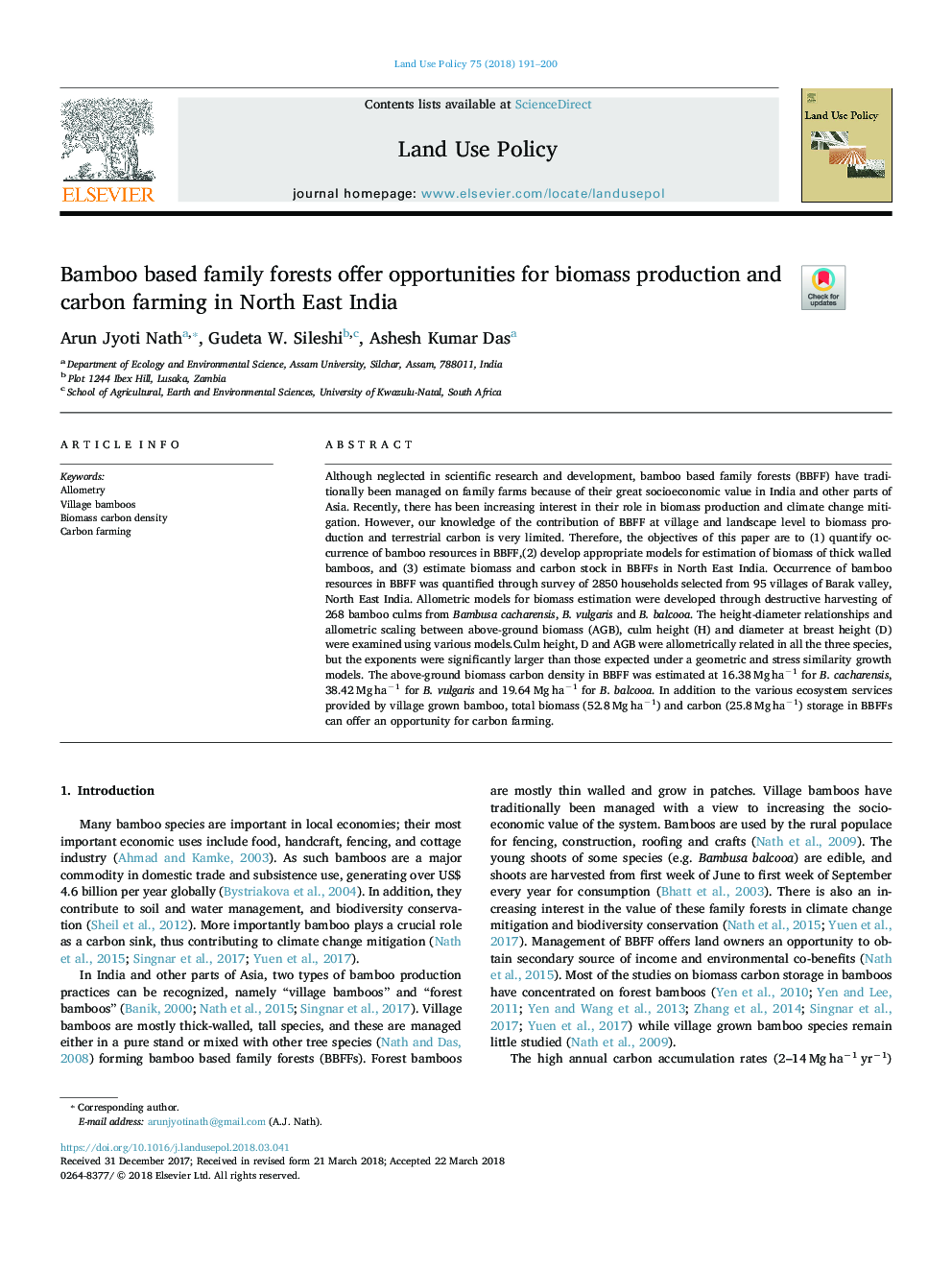| کد مقاله | کد نشریه | سال انتشار | مقاله انگلیسی | نسخه تمام متن |
|---|---|---|---|---|
| 6546360 | 1421808 | 2018 | 10 صفحه PDF | دانلود رایگان |
عنوان انگلیسی مقاله ISI
Bamboo based family forests offer opportunities for biomass production and carbon farming in North East India
ترجمه فارسی عنوان
جنگل های خانوادگی مبتنی بر بامبو فرصت های لازم برای تولید زیست توده و تولید کربن در شمال شرق هند را فراهم می کنند
دانلود مقاله + سفارش ترجمه
دانلود مقاله ISI انگلیسی
رایگان برای ایرانیان
کلمات کلیدی
آلومتریوم، بامبو روستایی، تراکم کربن زیست توده، کشاورزی کربن،
موضوعات مرتبط
علوم زیستی و بیوفناوری
علوم کشاورزی و بیولوژیک
جنگلداری
چکیده انگلیسی
Although neglected in scientific research and development, bamboo based family forests (BBFF) have traditionally been managed on family farms because of their great socioeconomic value in India and other parts of Asia. Recently, there has been increasing interest in their role in biomass production and climate change mitigation. However, our knowledge of the contribution of BBFF at village and landscape level to biomass production and terrestrial carbon is very limited. Therefore, the objectives of this paper are to (1) quantify occurrence of bamboo resources in BBFF,(2) develop appropriate models for estimation of biomass of thick walled bamboos, and (3) estimate biomass and carbon stock in BBFFs in North East India. Occurrence of bamboo resources in BBFF was quantified through survey of 2850 households selected from 95 villages of Barak valley, North East India. Allometric models for biomass estimation were developed through destructive harvesting of 268 bamboo culms from Bambusa cacharensis, B. vulgaris and B. balcooa. The height-diameter relationships and allometric scaling between above-ground biomass (AGB), culm height (H) and diameter at breast height (D) were examined using various models.Culm height, D and AGB were allometrically related in all the three species, but the exponents were significantly larger than those expected under a geometric and stress similarity growth models. The above-ground biomass carbon density in BBFF was estimated at 16.38â¯Mgâ¯haâ1 for B. cacharensis, 38.42â¯Mgâ¯haâ1 for B. vulgaris and 19.64â¯Mgâ¯haâ1 for B. balcooa. In addition to the various ecosystem services provided by village grown bamboo, total biomass (52.8â¯Mgâ¯haâ1) and carbon (25.8â¯Mgâ¯haâ1) storage in BBFFs can offer an opportunity for carbon farming.
ناشر
Database: Elsevier - ScienceDirect (ساینس دایرکت)
Journal: Land Use Policy - Volume 75, June 2018, Pages 191-200
Journal: Land Use Policy - Volume 75, June 2018, Pages 191-200
نویسندگان
Arun Jyoti Nath, Gudeta W. Sileshi, Ashesh Kumar Das,
